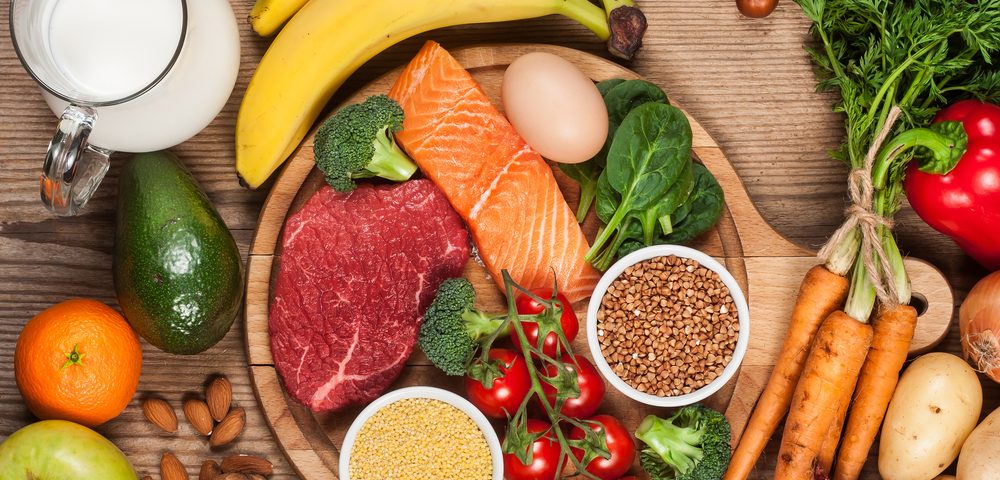Differences in diet may be part of the reason that stomach and gut problems are more common among women with endometriosis, a recent study suggests.
A planned diet by a nutritionist may help relieve disease burden in women with this often painful disorder, in which the tissue that makes up the lining of the womb is present on other organs in the body.
Titled “Different nutrient intake and prevalence of gastrointestinal comorbidities in women with endometriosis,” the study was published in the Journal of Physiology and Pharmacology.
Management of endometriosis symptoms, as for any health condition, doesn’t just involve pharmacological intervention. Lifestyle factors, like diet, can play a major role as well. Indeed, some studies have linked a diet with more trans fats with endometriosis, and others have suggested that supplementation with vitamin C might reduce endometriosis-related pelvic pain.
Most of these findings are preliminary and more research is needed. But these findings raise the possibility that changes in diet could help manage and even prevent the symptoms of endometriosis. However, in order to design diet interventions, it first is necessary to understand what people with endometriosis tend to eat and, consequently, gauge their nutrient intake.
To find out more, researchers at the Friedrich Alexander University in Erlangen-Nuernberg in Germany surveyed 156 people with endometriosis. The women (average age 35.5 years) were questioned about their dietary habits, as well as relevant clinical information. For comparison, a group of 52 women without endometriosis were recruited. The two groups were similar in age and body mass index (BMI). There were, however, significant differences in cycle regularity, bleeding duration, amenorrhea (absence of menstruation) over 6 months, pregnancy, and infertility.
Compared with the healthy participants (controls), a significantly higher percentage of women with endometriosis reported having gastrointestinal symptoms (76.9% vs. 28.8%). These symptoms included heartburn (26.9% vs. 1.9%, pyrosis), diarrhea (18.6% vs. 5.8%), and constipation (42.3% vs. 5.8%). The findings are in line with previous studies that have suggested that gastrointestinal symptoms are common among people with endometriosis.
“Overall study results indicate a possible association of endometriosis and gastrointestinal disorders,” the researchers said.
In terms of diet, the two groups were similar in their total energy intake, as well as in their overall intake of macronutrients like carbohydrates, fats, and proteins.
However, the results showed that participants with endometriosis consumed significantly less vitamin C (137.93 vs 152.92 mg/day), vitamin B12 (4.58 vs. 5.35 µg/day), and magnesium (424.76 vs. 457.81 mg/day) than the controls.
These results are still very much preliminary, but they provide a basis for possibly testing supplementation with these nutrients as a strategy for improving endometriosis symptoms.
Moreover, women with endometriosis also consumed significantly less animal protein than controls, which might explain the vitamin B12 lower values.
The researchers noted that studies related to food intolerances — which occurs when a person has difficulty digesting a particular food — in endometriosis are scarce, and needed.
“In our study the chance for intolerances was about four-times higher in endometriosis patients compared to controls and they were also more prone for multiple intolerances,” the investigators said.
The team also added that they observed a significantly higher proportion of women with endometriosis with a sensitivity to gluten.
This “may explain the positive effects of a gluten-free diet in the management of pelvic pain in these patients,” they said.
Diet alterations may be of help to women with endometriosis who have food intolerances, the study results suggest.
“The altered intake of certain nutrients may also suggest the dietary supplementation of e.g. vitamin C or magnesium to reduce disease burden and oxidative stress in the affected women,” the investigators concluded, while calling for further research.
“In future, controlled and randomized intervention studies are necessary to investigate the effect of certain nutrients on endometriosis with regard of coexisting gastrointestinal disorders and therapy side effects,” they said.

